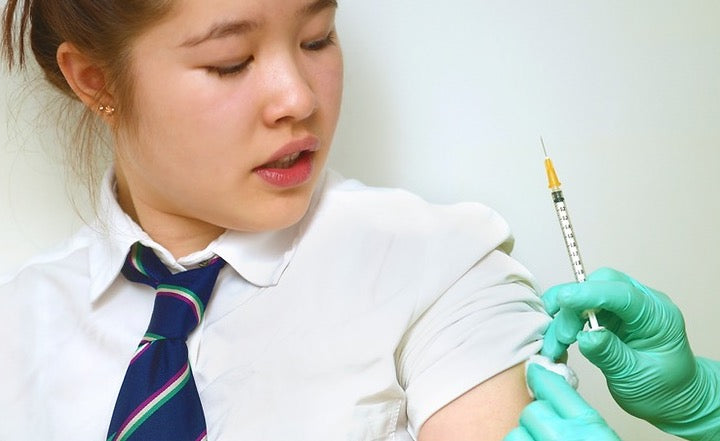
Cervical Cancer: Preventable with Vaccination
Cervical cancer, a pervasive global health concern for women, remains a prevalent issue affecting numerous individuals worldwide. This article explores how common cervical cancer is, how it develops, and how it can be prevented through HPV vaccination.
The Cause of Cervical Cancer: HPV
Constituting around 15% of all female cancers globally and ranking second among cancers in women, cervical cancer is chiefly attributed to infection by the HPV.
Although the transmission route of HPV is not entirely elucidated, sexual contact is identified as a predominant mode of cervical HPV infection. With over 150 known HPV types, around 40 can induce pathological changes in the cervical epithelium. However, not every HPV infection progresses to cervical cancer. Typically, the immune system clears HPV infections within about nine months, with 90% of individuals naturally eliminating the virus within two years without specific treatment.
The Vital Role of the HPV Vaccine
Fortunately, cervical cancer is a preventable cancer because it has a long precancerous stage and screening tests for early detection, along with appropriate treatments. Additionally, there is a vaccine available to prevent the occurrence of cervical cancer, which is widely used in South Korea as a cancer prevention method.

Administered in three doses, the preventive vaccine offers nearly 100% protection against HPV types 16 and 18. Remarkably, individuals previously infected can safeguard themselves from reinfection.
The types of vaccines available are as follows:
- 2-valent vaccine: Prevents diseases caused by HPV types 16 and 18, responsible for 70% of cervical cancer cases.
- 4-valent vaccine: Prevents diseases caused by HPV types 16, 18, and also HPV types 6 and 11, responsible for 90% of genital warts.
- 9-valent vaccine: Prevents diseases caused by HPV types 6, 11, 16, 18, 31, 33, 45, 52, and 58.
The World Health Organization(WHO) recognizes cervical cancer vaccines' significance, effectiveness, and safety. The most crucial aspect is getting vaccinated before HPV infection occurs. Even for those with a history of sexual experiences, vaccination remains beneficial if HPV infection has not transpired.
Cervical cancer, with its discernible causes, stands as a preventable malady through vaccination. Safeguard your health through timely vaccination.

